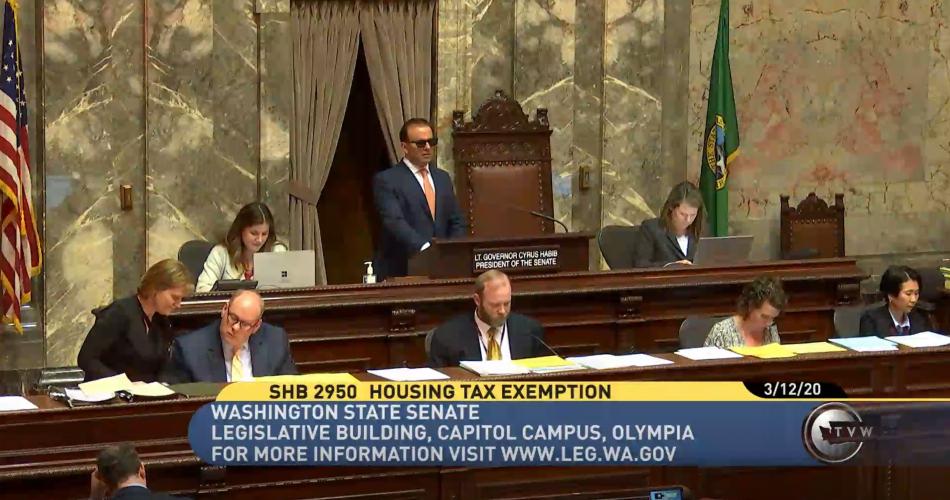Reading time: 4 minutes
Washington’s MFTE program provides a tax exemption for property developers who set aside units affordable to those making under 80% of Area Median Income (AMI). It was cited by the Obama Administration as an effective program for tackling housing affordability. While an earlier version of the MFTE extension would have also expanded the utility of the program (read more about the legislation here), the bill that passed this week provides for a short-term extension of the MFTE for qualifying properties whose affordability expires between the effective date of the legislation and Jan. 1, 2022. The bill also establishes a workgroup that will convene in the intervening months between now and Jan. 1, 2021, and whose charge will be to craft recommendations for the legislature to consider in the 2021 session to provide a longer-term extension for properties in the MFTE program.
While Up for Growth Washington aggressively pushed for a robust extension and enhancement of the MFTE program, we are pleased the legislature recognized the immediate need to prevent units currently affordable for working families from becoming unaffordable. HB 2950 ensures that nearly 1,000 units remain affordable to low- and moderate-income households. As passed, HB 2950 gives housing leaders in the legislature time to develop a long-term solution for the program without risking losing precious affordable housing stock in the immediate term. Up for Growth Washington will stay closely engaged with legislative leaders during this process.
Pushing the MFTE extension across the finish line is no small feat, especially considering a similar proposal failed to reach final passage before the 2019 legislative session adjourned. It’s the product of the hard work of a bipartisan group of legislators, including four who spoke at the release of our Housing Underproduction in Washington report: State Senator Patty Kuderer (D-LD48), State Senator Hans Zeiger (R-LD25), State Representative Nicole Macri (D-LD43), and State Representative Andrew Barkis (R-LD02). They recognize that Washington’s 225,000-home deficit requires bold solutions at the state level, including strengthening existing programs such as the MFTE.
Another critical pro-housing bill, SB 6617, passed the legislature earlier this week. Up for Growth applauds this legislation that seeks to boost the production of Accessory Dwelling Units (ADUs) by eliminating a key barrier – requiring that communities eliminate off-street parking requirements for ADUs within one-quarter mile of transit stops.
As we’ve said in earlier insights, solutions to the housing crisis must come in many forms. But we cannot ignore the programs already in place to create affordability. We should continue to look for ways to strengthen these programs so they can help people in desperate need of a home they can afford.
